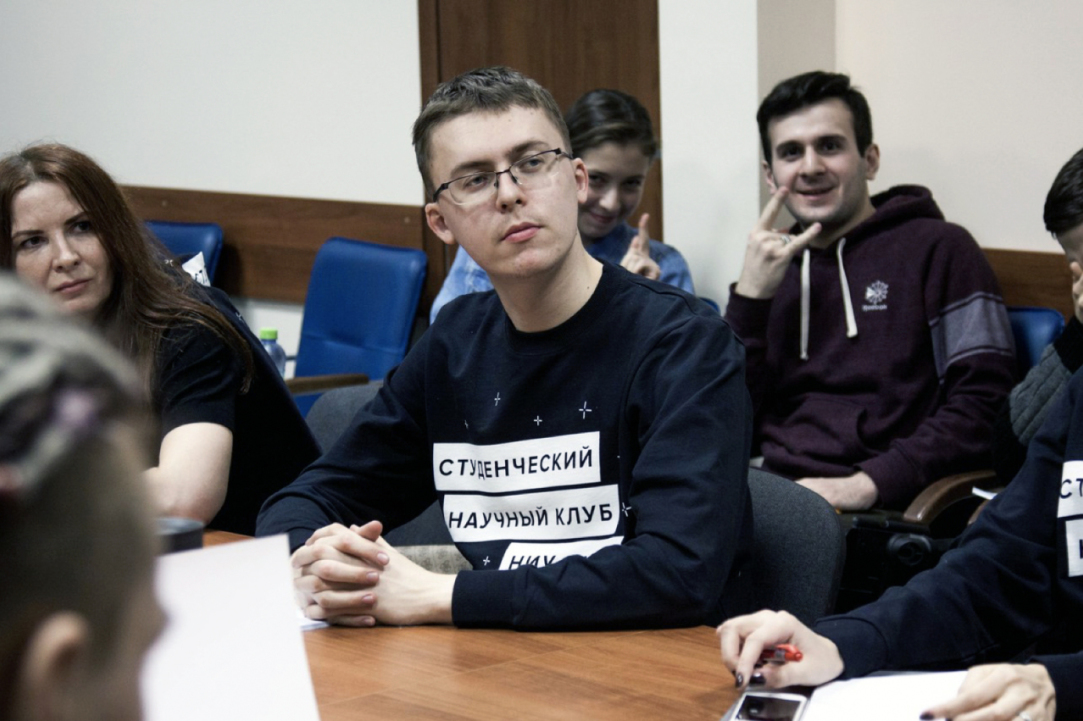Student Research Club Founded at HSE
ΧΣΕ– ChiSigmaEpsilon – is the name of a new association for students who love science and who want to better understand the academic side of university life. This Research Club will help them develop their skills in research, teaching, and consulting, as well as supporting their participation in applied projects.

Why do we need the Research Club?
The Research Club aims to become a platform for students to get and develop their academic skills, and will evolve into a community of people thinking about a career in academia.
‘Communication is essential in research, and to make it happen, we need to create platforms for communication’, believes Igor Chirikov, HSE Vice Rector and one of the initiators of the student Research Club, ‘HSE is a research university, and we want to implement this mission in studying as well. We want to ensure that research and learning are not two separate worlds at HSE. For students, getting involved in research will be useful for their studies. Later on, they will be able to be employed elsewhere, maybe not even in academia. But the analytical experience of ‘solving puzzles’ is a skill which is very much in demand’.
Of course, HSE already offers a lot of opportunities for academic development, but some of these resources, such as the Young Faculty Development Programme or the Academic Writing Centre are not available for students who are not employed at the university full-time (and to do that, they have to have some real research results). Meanwhile, some departments are not ready to employ young researchers who don’t have research experience and publications. The HSE Student Research Club will be open to everyone: for those simply interested in research or those who already know that they want to become a professional academic.
What will the Research Club do?
The Club will implement academic development programmes for students in such areas as research, teaching, and consulting, as well as supporting their participation in applied projects. One of the Club’s priorities is to provide the right conditions for student academic development and to create a ‘student pre-faculty support programme’. To achieve this, the Club is going to organize schools, mini courses and workshops (including extramural ones), and competitions, as well as creating teaching and learning aids, and providing consultation for academic work.
ΧΣΕ is also planning to organize popular science events, aimed at increasing student interest in the research side of university life, and informing them about all the academic opportunities available for HSE students. The Club founders are going to organize annual ΧΣΕ Research Festivals, with the help of student initiative teams, which will be a kind of a Career Fair inside HSE research departments. In addition to this, the Research Club will support student research start-ups and support the Research Battle, which was one of the most successful student projects and remarkable university events in 2017. The Club founders are going to add an educational programme to this project, during which the students will be taught how to better communicate their research.
One of the most complicated academic genres is an interdisciplinary approach. That’s why one of the club functions will be to facilitate interdisciplinary student projects and teams. ‘Research may be very varied. A lot of breakthrough and high-quality research is carried out as part of certain areas’, said Igor Chirikov, ‘But we’ll be experimenting with interdisciplinary projects for two reasons. First, because this is a type of project that doesn’t currently have many platforms at HSE, and second, this is one of the most complicated genres in research, but also one of the most promising in terms of solving the puzzles we are facing’.
Who can enter the club?
During the first stage, the Research Club will open its doors for the winners of the Student Research Paper Competition, for students employed at research departments, and for participants of student research associations. Later on, participation in the club may be expanded in order to enroll all interested students.
Incidentally, the first announcement of the Student Research Club was made at the extracurricular school for the Student Research Paper Competition winners ‘Academicus Modus’. This school has already become an important platform for the evolving student research community. ‘The school is aimed at developing the participants’ academic skills, and provides them with an opportunity to communicate and build a professional community’, said Valeria Utkina, Senior Lecturer at the Department of Public and Local Service, ‘Participants had a chance to talk to lecturers, teachers, and scholars, as well as to editors of journals published by the HSE Publishing House, and this doesn’t happen often. A nice feature of such schools is that it is totally up to the participants whether to come here or not. That’s why the atmosphere is so friendly and home-like, where everyone exchanges insights and ideas. This is a community of motivated people’.
How will the club be organized?
The main organizational idea of the Research Club is ‘Less bureaucracy, more research’. The organizational structure will be horizontal. The Club Council will outline the strategic areas of the club development and draw up a plan for the year. Membership of the council will be invitation only, and it will consist of students and staff from research departments.
If you are interested in joining the Research Club and learning more about it, please contact Valeria Utkina.
Author: Kira Legut

